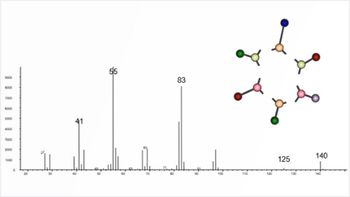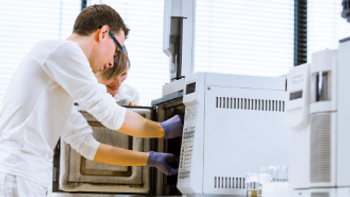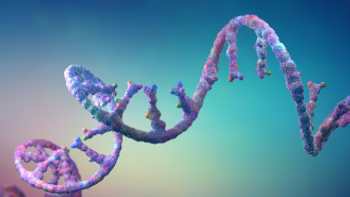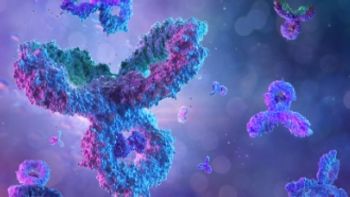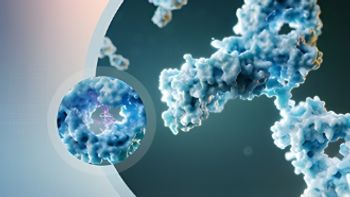
Advances in Compact Micro-flow HPLC Systems that Enhance Productivity and Performance
Tuesday, May 10, 2022 at 1pm EDT|11am MST|10am PDT|5pm GMT Today’s novice and expert LC users are pushing science forward while enhancing lab productivity and performance by using compact capillary HPLC systems.
Register Free:
Event Overview:
Separation scientists and researchers can now benefit from the advantages of capillary micro-flow UHPLC instruments compared to analytical-scale systems. These compact instruments save significant benchtop and lab space, lower operating costs, and provide ease-of-use, safety, and eco-friendly benefits. This webinar focuses on how today’s capillary liquid chromatography instruments deliver ease of use, excellent performance, and seamless integration with other analytical systems. Using these compact systems, both novice and expert LC users are pushing science forward while enhancing lab productivity and performance. In this event we will:
- Discuss the limitations conventional systems, including size, the level of expertise required for analytical system operation, and method overhead time;
- Demonstrate the reliability, reproducibility, and quantitation capabilities of capillary LC–MS across a wide range of application areas;
- Outline the benefits of compact, self-contained LC systems that deliver accelerated productivity and reduce operating costs.
- Highlight the reduced environmental impact of compact LC systems due to dramatically lower solvent usage and waste creation.
- Explore new use-cases for compact, micro-flow UHPLC systems, including:
- Process Analytical Technology (PAT) in the pharmaceutical industry;
- BTEX analysis in produced water for offshore drilling.
Key Learning Objectives:
- Summarize the drawbacks of conventional HPLC systems.
- Understand the benefits of capillary-flow systems and the reasons compact matters.
- Learn how to improve UHPLC performance and enhance lab productivity.
Who Should Attend:
Industries:
All industries and fields, such as pharmaceuticals, biopharmaceuticals, food analysis, environmental analysis, fuels (biofuels and petroleum-based), petrochemicals, heavy industry, and more.
Titles:
- Presidents, C-level Executives
- Senior/Chief Chemist/Scientists
- Laboratory Managers and Supervisors
- Lab Technicians
For any technical questions please contact Jordan Ramesh: jramesh@mjhlifesciences.com
Speakers
Dr. Ray West
Vice President, Customer Success
Axcend
During a career spanning over 30 years, Dr. Ray West has contributed to research in petrochemicals, pharmaceuticals, spectroscopy, and scientific instruments. After receiving his doctorate in Chemistry from Brigham Young University, Dr. West spent 11 years with Shell Oil Company. After leaving Shell as a Sr. Research Chemist, he became the Technology Director for Gilson where he established and managed the technical center for this supplier of pharmaceutical industry tools. Dr. West then transitioned to Protasis, a developer of nuclear magnetic resonance (NMR) spectroscopy equipment, and then for the past 13 years with Moxtek, a subsidiary of Japan-based Nippon Kayaku. Dr. West earned his Bachelor of Science degree in Chemistry and a Ph.D. in Analytical Chemistry at Brigham Young University.
Dr. Milton Lee
Chief Science Officer and Co-Founder
Axcend
Dr. Lee is recognized as one of the world’s foremost experts in separation science, while also becoming a serial inventor and entrepreneur. In addition to inventing the first portable gradient capillary high-performance liquid chromatograph (HPLC), the Axcend Focus LC, Dr. Lee has invented and commercialized a supercritical fluid chromatograph (Lee Scientific), a time-of-flight mass spectrometer (Sensar), and a portable gas chromatograph/mass spectrometer (Torion). Dr. Lee has authored or co-authored more than 590 scientific publications, delivered over 500 technical presentations, and has over 20 patents to his credit. Additionally, he has received over 25 prestigious industry awards and recognitions during his 40-plus years as a professor at Brigham Young University. Dr. Lee received a doctorate in Analytical Chemistry from Indiana University and a bachelor’s degree in Chemistry from the University of Utah and completed post-doctoral research in Chemical Engineering at the Massachusetts Institute of Technology.
Register Free:
Newsletter
Join the global community of analytical scientists who trust LCGC for insights on the latest techniques, trends, and expert solutions in chromatography.

